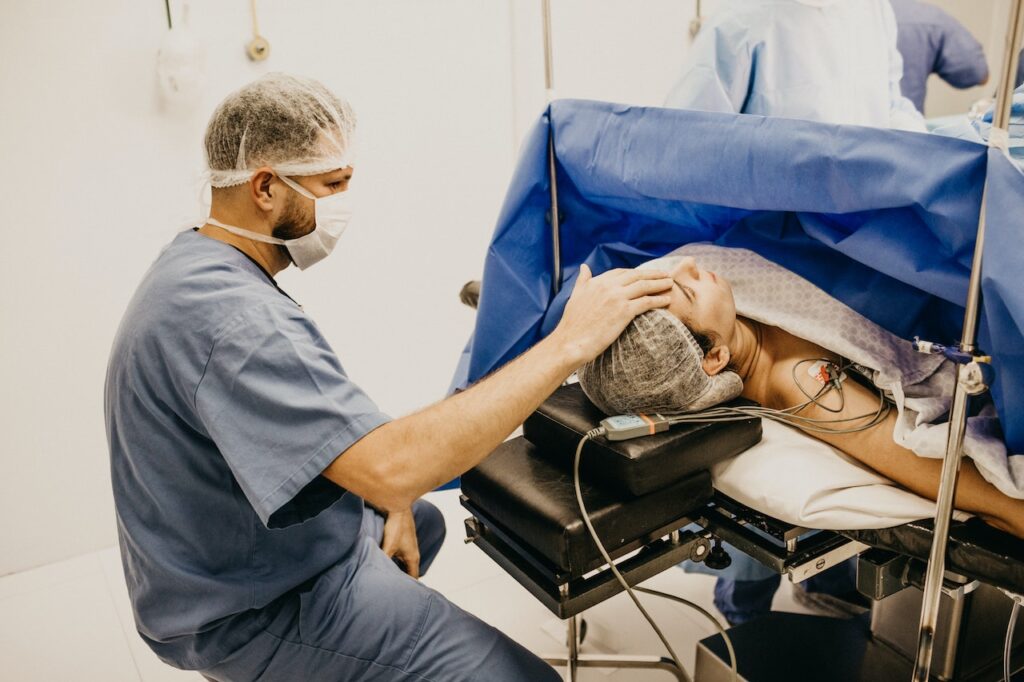Bypass surgery is a common procedure used to treat heart disease. It involves creating a new pathway for blood to flow around a blocked or narrowed artery. While bypass surgery can be life-saving, it also comes with a significant cost. In this article, we will explore the various factors that contribute to the cost of bypass surgery and provide tips on how to manage these expenses.
One of the biggest factors affecting the cost of bypass surgery is the type of procedure performed. There are several different types of bypass surgery, each with its own unique cost. Additionally, the cost of bypass surgery can vary depending on the location of the hospital, the experience of the surgeon, and the length of the hospital stay. Understanding these cost factors can help patients make informed decisions about their healthcare.
Key Takeaways
- The cost of bypass surgery can vary depending on the type of procedure, location of the hospital, experience of the surgeon, and length of hospital stay.
- Patients can manage the cost of bypass surgery by researching their options, negotiating with their healthcare provider, and seeking financial assistance.
- It is important for patients to understand the cost factors associated with bypass surgery in order to make informed decisions about their healthcare.
Understanding Bypass Surgery
What is Bypass Surgery?
Bypass surgery, also known as coronary artery bypass grafting (CABG) or heart bypass surgery, is a surgical procedure to treat blocked or narrowed coronary arteries. Coronary arteries are the blood vessels that supply oxygen and nutrients to the heart muscle.
During bypass surgery, a surgeon takes a healthy blood vessel from another part of the body, such as the chest or leg, and uses it to create a new route for blood to flow around the blocked or narrowed artery. This new blood vessel is called a graft.
Bypass surgery is usually performed under general anesthesia and typically takes several hours to complete. Patients may need to stay in the hospital for several days after the surgery to recover.
Different Types of Bypass Surgery
There are several types of bypass surgery, including:
- Traditional CABG: This is the most common type of bypass surgery. It involves making a large incision in the chest to access the heart.
- Minimally invasive CABG: This is a newer technique that involves making smaller incisions in the chest. It may result in less pain and a faster recovery time.
- Off-pump CABG: This technique involves performing the surgery without stopping the heart. It may be an option for patients who are at higher risk for complications.
- Triple bypass surgery: This involves bypassing three blocked or narrowed arteries.
Bypass surgery is a major surgery that carries some risks, including bleeding, infection, and stroke. However, it can be an effective treatment option for patients with severe coronary artery disease who have not responded to other treatments.
Medical Professionals Involved
Role of a Surgeon
The surgeon is a key member of the medical team involved in bypass surgery. They are responsible for performing the actual procedure, which involves creating a new pathway for blood to flow around the blocked or narrowed artery. During the surgery, the surgeon will make an incision in the chest to access the heart, and use a vein or artery from another part of the body to create the bypass.
In addition to performing the surgery, the surgeon will also be responsible for monitoring the patient’s condition during and after the procedure. They will work closely with other members of the medical team to ensure that the patient is receiving appropriate care and treatment.
Role of a Cardiologist
The cardiologist is another important member of the medical team involved in bypass surgery. They are responsible for diagnosing and treating heart conditions, and will often be the first medical professional to see a patient who is experiencing symptoms of heart disease.
Before the surgery, the cardiologist will work with the patient to develop a treatment plan. They will also perform a variety of tests to determine the extent of the patient’s heart disease, and to identify any other health issues that may impact the surgery.
After the surgery, the cardiologist will work closely with the patient to monitor their condition and ensure that they are receiving appropriate care and treatment. They will also provide guidance on lifestyle changes that can help to prevent future heart disease.
Overall, the expertise of both the surgeon and the cardiologist is critical to the success of bypass surgery. By working together as part of a larger medical team, they are able to provide patients with the care and treatment they need to overcome heart disease and improve their overall health.
Pre-Surgery Procedures
Medical Tests Required
Before undergoing bypass surgery, patients are required to undergo a series of medical tests to ensure that they are healthy enough for the procedure. These tests typically include blood tests, electrocardiogram (EKG), imaging tests such as X-rays and ultrasounds, and other diagnostic procedures as deemed necessary by the physician.
The blood tests are used to check the patient’s blood count, electrolyte levels, and kidney and liver function. The EKG is used to detect any abnormalities in the heart’s rhythm and structure. Imaging tests such as X-rays and ultrasounds are performed to check for blockages in the arteries and to determine the extent of the damage to the heart.
Understanding Anesthesia
Bypass surgery is typically performed under general anesthesia, which means that the patient is completely unconscious during the procedure. An anesthesiologist is responsible for administering and monitoring the anesthesia throughout the surgery.
Before the surgery, the anesthesiologist will meet with the patient to discuss their medical history and any medications they are currently taking. It is important for the patient to be honest about their medical history and any allergies they may have to medications.
During the surgery, the anesthesiologist will monitor the patient’s vital signs and adjust the anesthesia as necessary to ensure that the patient remains unconscious and pain-free. After the surgery, the patient will be monitored in the recovery room until they are fully awake and their vital signs are stable.
Overall, the pre-surgery procedures are an important part of the bypass surgery process. The medical tests help to ensure that the patient is healthy enough for the procedure, while the anesthesia ensures that the patient is comfortable and pain-free during the surgery.
Post-Surgery Care and Recovery
After undergoing bypass surgery, patients require close monitoring and proper care to ensure a successful recovery. The post-surgery care and recovery period typically lasts for several weeks, and it is important to follow the doctor’s instructions to prevent complications and promote healing.
Hospital Stay
Following bypass surgery, patients are usually required to stay in the hospital for a few days to a week, depending on the extent of the surgery and their overall health. During this time, doctors and nurses will closely monitor the patient’s vital signs, administer medications, and provide wound care.
Patients may experience pain, discomfort, and fatigue during their hospital stay, but medication and rest can help manage these symptoms. It is important for patients to follow the doctor’s instructions regarding physical activity and diet during this time to promote healing and prevent complications.
Physical Therapy
After being discharged from the hospital, patients will typically require physical therapy to help regain strength and mobility. Physical therapy may involve exercises to improve cardiovascular endurance, strength training, and range of motion exercises.
Physical therapy sessions may be conducted in a hospital or outpatient setting, and patients may be required to attend several sessions per week. It is important for patients to attend all scheduled physical therapy sessions and follow the therapist’s instructions for at-home exercises to ensure a successful recovery.
In conclusion, proper post-surgery care and recovery is essential for patients who have undergone bypass surgery. Following the doctor’s instructions, attending physical therapy sessions, and taking care to manage symptoms can help promote healing and prevent complications.
Potential Complications and Risks
Common Post-Surgery Complications
Like any surgery, bypass surgery comes with risks. Some of the most common post-surgery complications include:
- Infection at the incision site
- Blood clots
- Stroke
- Bleeding
Infection is a risk with any surgery, but it is particularly important to prevent infection after bypass surgery. Patients should keep their incision site clean and dry and follow their doctor’s instructions for wound care.
Blood clots are another common complication of bypass surgery. These clots can form in the legs and travel to the lungs, which can be life-threatening. Patients may be given blood thinners to help prevent blood clots.
Stroke is a risk with any surgery, but it is particularly important to prevent stroke after bypass surgery. Patients should be monitored closely for signs of stroke, such as weakness or numbness on one side of the body, difficulty speaking, or loss of vision.
Bleeding is another common complication of bypass surgery. Patients may experience bleeding at the incision site or in the chest. In some cases, patients may need a blood transfusion to replace the lost blood.
Understanding the Risks
Bypass surgery is a major surgery, and as with any surgery, there are risks involved. Some of the risks associated with bypass surgery include:
- Death
- Infection
- Blood clots
- Stroke
- Bleeding
While the risks of bypass surgery are serious, they are relatively low. According to the American Heart Association, the risk of death from bypass surgery is less than 2%. However, the risks may be higher for patients who are older, have other health conditions, or are undergoing emergency surgery.
Patients should discuss the risks and benefits of bypass surgery with their doctor to determine if it is the right choice for them.
Cost Factors of Bypass Surgery
Bypass surgery is a major medical procedure that can be costly. The cost of bypass surgery can vary depending on several factors. In this section, we will explore the different factors that can affect the cost of bypass surgery.
Surgeon and Hospital Fees
The surgeon and hospital fees are the major components of the cost of bypass surgery. The surgeon’s fee can vary depending on his or her experience and reputation. The hospital fee can also vary depending on the type of hospital and the region where it is located. Patients can expect to pay anywhere from $20,000 to $200,000 for bypass surgery.
Anesthesia and Medications Cost
The cost of anesthesia and medications can add up to the total cost of bypass surgery. The cost of anesthesia can vary depending on the type of anesthesia used. Patients can also expect to pay for medications before and after the surgery. The cost of medications can vary depending on the type of medication and the region where it is purchased.
Cost of Pre and Post-Surgery Procedures
The cost of pre and post-surgery procedures can also add up to the total cost of bypass surgery. Patients may need to undergo several tests before the surgery, such as blood tests and imaging tests. After the surgery, patients may need to stay in the hospital for a few days or even weeks. They may also need to undergo physical therapy and rehabilitation.
Insurance and Out-of-Pocket Costs
The cost of bypass surgery can be covered by health insurance. Patients should check with their insurance provider to see if bypass surgery is covered and to what extent. Patients may also have to pay out-of-pocket costs such as deductibles, co-pays, and coinsurance. Patients who do not have health insurance may be eligible for Medicaid or Medicare. The Affordable Care Act (Obamacare) may also provide assistance to patients who need bypass surgery.
In conclusion, the cost of bypass surgery can vary depending on several factors such as surgeon and hospital fees, anesthesia and medications cost, cost of pre and post-surgery procedures, and insurance and out-of-pocket costs. Patients should consult with their healthcare provider and insurance provider to determine the cost of bypass surgery and what options are available to them.
Bypass Surgery for Weight Loss
Understanding Gastric Bypass Surgery
Gastric bypass surgery, also known as bariatric surgery, is a weight loss surgery that involves creating a small stomach pouch and rerouting the small intestine to that pouch. This procedure reduces the amount of food the patient can eat and the amount of calories they absorb. It is usually performed on patients with a body mass index (BMI) of 40 or higher, or a BMI of 35 or higher with a weight-related health condition such as type 2 diabetes or high blood pressure.
The surgery is typically performed laparoscopically, which means it is minimally invasive and requires only small incisions. The procedure can take between two to four hours, and patients usually stay in the hospital for one to two days.
Benefits of Weight Loss Surgery
Gastric bypass surgery has been shown to have numerous benefits beyond weight loss. Patients who undergo the procedure often experience improvements in their quality of life, including increased mobility and a reduction in weight-related health conditions such as type 2 diabetes, high blood pressure, high cholesterol, and obstructive sleep apnea.
In addition to physical health benefits, weight loss surgery can also lead to positive lifestyle changes. Patients often report feeling more confident and motivated to maintain a healthy diet and exercise routine after the surgery.
It is important to note that weight loss surgery is not a quick fix for obesity. Patients must commit to making significant lifestyle changes in order to achieve and maintain weight loss. The surgery is a tool to help patients achieve their weight loss goals, but it is not a substitute for healthy habits.
Overall, gastric bypass surgery can be an effective option for patients who are struggling with obesity and weight-related health conditions. It is important for patients to work closely with their healthcare team to determine if the procedure is right for them and to develop a plan for long-term success.
Frequently Asked Questions
What is the average cost of triple bypass surgery?
The average cost of triple bypass surgery in the United States ranges from $30,000 to $150,000, depending on the location, hospital, and surgeon’s experience. However, the cost may vary in other countries.
Which country has the lowest cost for bypass surgery?
India and Thailand are known for providing affordable bypass surgery options. The cost of the surgery in these countries is around $10,000 to $15,000, which is significantly lower compared to the United States.
What is the cost of quintuple bypass surgery?
The cost of quintuple bypass surgery in the United States ranges from $50,000 to $200,000. However, the cost may vary depending on the location, hospital, and surgeon’s experience.
Does insurance cover the cost of heart surgery?
Most insurance plans cover the cost of heart surgery, including bypass surgery. However, it is recommended to check with the insurance provider regarding the coverage and out-of-pocket expenses.
How much does gastric bypass surgery cost in Texas?
The cost of gastric bypass surgery in Texas ranges from $15,000 to $35,000. However, the cost may vary depending on the location, hospital, and surgeon’s experience.
What is the cost of quadruple bypass surgery?
The cost of quadruple bypass surgery in the United States ranges from $40,000 to $180,000. However, the cost may vary depending on the location, hospital, and surgeon’s experience.





